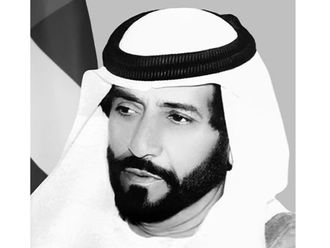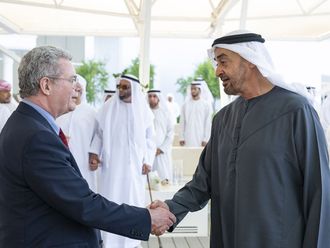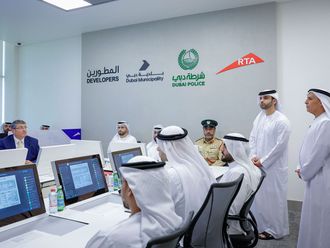Abu Dhabi: A leading Palestinian-American scholar and advocate for Palestinian rights says the time is not ripe for a big diplomatic push to turn the two-state solution into a two-state reality.
Rashid Al Khalidi, professor of Arab studies at Columbia University, said the idea of two-state solution faces the juggernaut of Israel's actions in the occupied territories over decades, actions that have been designed to make its realisation in any meaningful form impossible.
"The two-state solution is very difficult for reasons including the half a million Israelis living in the occupied Arab territories after 1967, the decade old matrix of control over four million Palestinians, divisions among the Palestinians and ineffective Arab and Muslim stand," Al Khalidi told the audience in a lecture at the Emirates Centre for Strategic Studies and Research on Wednesday.
While stressing that the two-state solution might take long to realise, Al Khalidi added that "there are also flaws in the alternative, grouped under the rubric of the one-state solution. The Palestinian people want freedom in their sovereign state."
Al Khalidi called on the Palestinian people to decide what they want and form a united front.
New approach
Al Khalidi told Gulf News that the American Administration has to adopt a new approach to push forward the Middle East peace process.
"I call on the US administration to adopt an approach that's based on international law, on decisions of the United Nations and on American commitments to the Palestinians in the past... This is the position of the administration of [former] President George H. W. Bush in 1991 when it gave the Palestinian delegation a letter of assurances, opposing settlements, opposing the annexation of [occupied] Jerusalem, stressing illegality of the acquisition of territory by force.
"These are principled positions that the United Nations and the United States have taken in the past, but which many American administrations have moved away from."
Al Khalidi said the Palestinians are responsible for their own disunity. "This is a Palestinian problem and the Palestinians must resolve it themselves. And I think it should be a primary, if not, the primary priority for the Palestinians."
However, he blamed external forces including the United States, Israel, Iran and others for having played a role in reinforcing divisions among the Palestinians. Al Khalidi said the American-Iranian confrontation is playing the same role as the Cold War had played.











